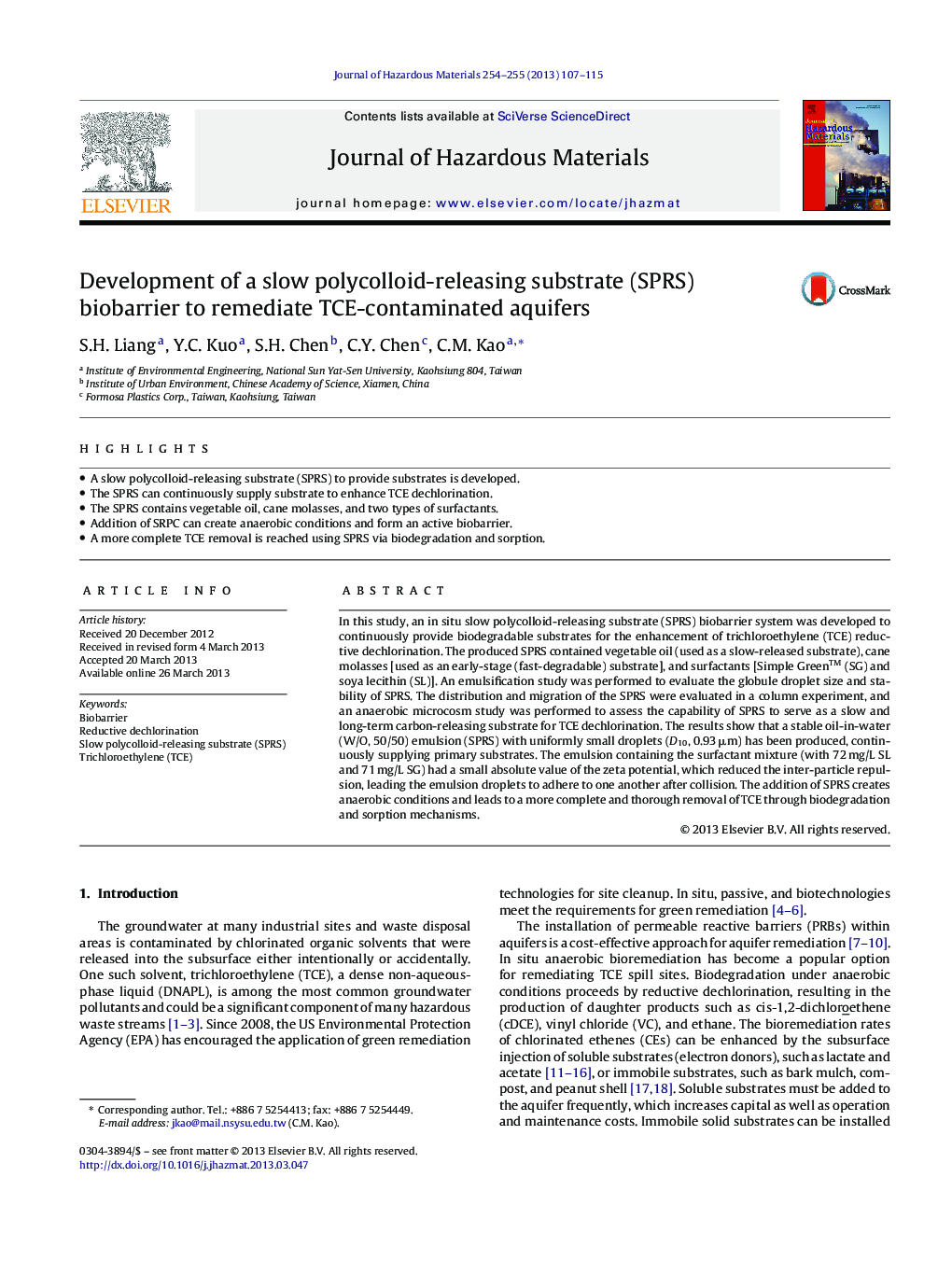| کد مقاله | کد نشریه | سال انتشار | مقاله انگلیسی | نسخه تمام متن |
|---|---|---|---|---|
| 577248 | 1453102 | 2013 | 9 صفحه PDF | دانلود رایگان |
عنوان انگلیسی مقاله ISI
Development of a slow polycolloid-releasing substrate (SPRS) biobarrier to remediate TCE-contaminated aquifers
دانلود مقاله + سفارش ترجمه
دانلود مقاله ISI انگلیسی
رایگان برای ایرانیان
کلمات کلیدی
موضوعات مرتبط
مهندسی و علوم پایه
مهندسی شیمی
بهداشت و امنیت شیمی
پیش نمایش صفحه اول مقاله

چکیده انگلیسی
In this study, an in situ slow polycolloid-releasing substrate (SPRS) biobarrier system was developed to continuously provide biodegradable substrates for the enhancement of trichloroethylene (TCE) reductive dechlorination. The produced SPRS contained vegetable oil (used as a slow-released substrate), cane molasses [used as an early-stage (fast-degradable) substrate], and surfactants [Simple Green⢠(SG) and soya lecithin (SL)]. An emulsification study was performed to evaluate the globule droplet size and stability of SPRS. The distribution and migration of the SPRS were evaluated in a column experiment, and an anaerobic microcosm study was performed to assess the capability of SPRS to serve as a slow and long-term carbon-releasing substrate for TCE dechlorination. The results show that a stable oil-in-water (W/O, 50/50) emulsion (SPRS) with uniformly small droplets (D10, 0.93 μm) has been produced, continuously supplying primary substrates. The emulsion containing the surfactant mixture (with 72 mg/L SL and 71 mg/L SG) had a small absolute value of the zeta potential, which reduced the inter-particle repulsion, leading the emulsion droplets to adhere to one another after collision. The addition of SPRS creates anaerobic conditions and leads to a more complete and thorough removal of TCE through biodegradation and sorption mechanisms.
ناشر
Database: Elsevier - ScienceDirect (ساینس دایرکت)
Journal: Journal of Hazardous Materials - Volumes 254â255, 15 June 2013, Pages 107-115
Journal: Journal of Hazardous Materials - Volumes 254â255, 15 June 2013, Pages 107-115
نویسندگان
S.H. Liang, Y.C. Kuo, S.H. Chen, C.Y. Chen, C.M. Kao,